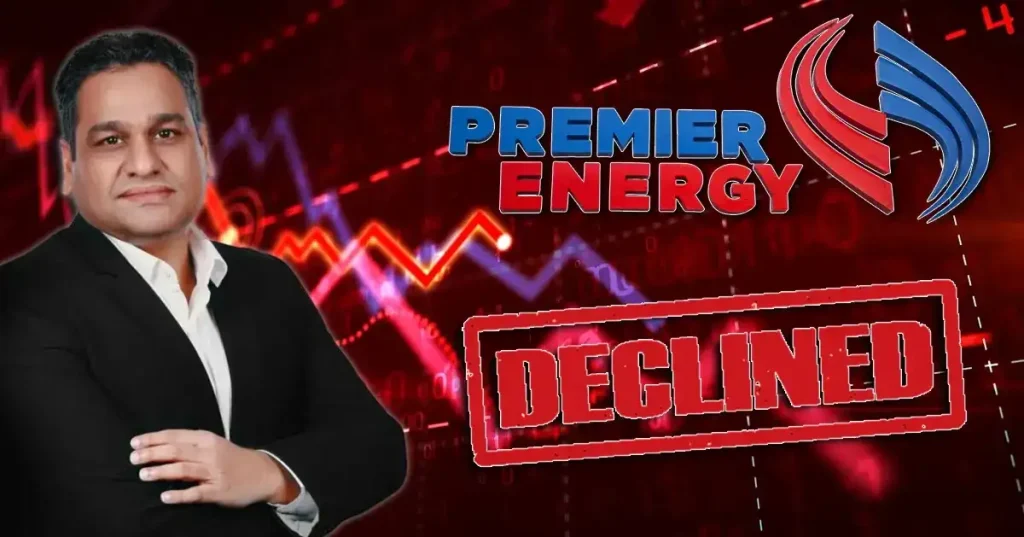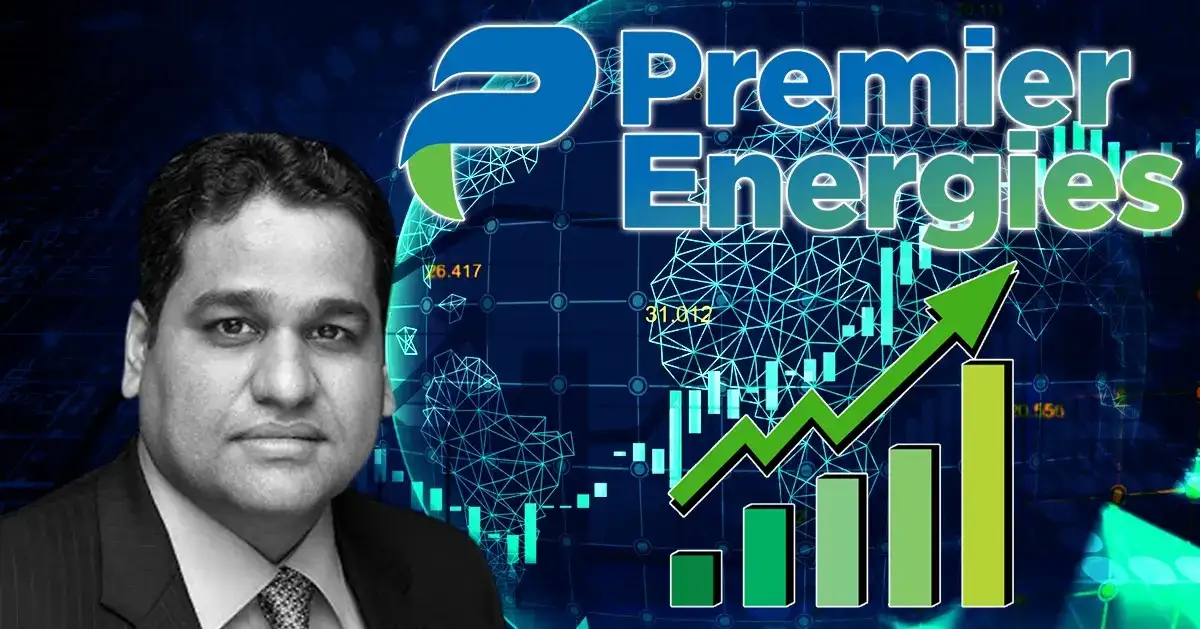Premier Energies Shares Decline After Avendus Spark Says Stock Is ‘Fairly Priced’
On September 23, Premier Energies, which is India’s third-largest solar module manufacturer, saw its stock slip 1.3% to ₹1,014. The trigger wasn’t poor earnings or a policy shock. It was a single line from Avendus Spark:
“Premier Energies is a fixed-cost heavy business; profitability could also be affected by lower utilisation and realisation… the stock is fairly priced.”
That sentence, tucked inside a largely optimistic report, quietly changed the mood. It didn’t question Premier’s strength; instead, it questioned its valuation. And in today’s market, that’s enough to pull the brakes.
Premier’s Rise Meets Its Limit
Premier Energies had been riding high. Since its IPO at ₹450, the stock surged 181% to ₹1,267.95 before cooling off. Over the last six months, it gained 10%, but year-to-date, it’s down nearly 24%.
Avendus Spark gave it an “add” rating with a price target of ₹1,100, just 7% above its current level.
That’s not a downgrade, but it’s a signal that the easy upside is gone. Investors who bought into the growth story are now staring at a valuation ceiling.

The Numbers Are Strong, But Are They Enough?
Premier Energies’ Q4 FY25 results were impressive. But Avendus Spark’s caution wasn’t about numbers; it was about structure. Premier Energies runs a fixed-cost-heavy model. That means if demand dips or prices soften, margins can erode fast.
Avendus Spark coverage initiation report warns that, “Profitability could also be affected by lower utilisation and realisation.”
This is the kind of insight that separates momentum from durability. Let’s have a closer look at Premier League results:
- Net Profit: ₹278 crore, up 167% YoY
- Revenue: ₹1,621 crore, up 43.8% YoY
- EBITDA: ₹500 crore, up 1.9x YoY, beating consensus by 9%
- EBITDA Margin: 33%, up 1,623 basis points
Its order book stands at ₹8,400 crore, covering 5.3GW of capacity, 73% in modules, 27% in cells. ICICI Securities remains bullish, with a target of ₹1,320, according to Business Today.
Is Premier Energies At Risk From Shifting Global Trade Dynamics?
Premier Energies exports to over 20 countries, including the U.S., Germany, France, and South Korea. But global sentiment around renewables is changing. With Donald Trump back in office, trade policies could shift, especially around clean energy.
A company that relies on exports is vulnerable to tariffs and shifting alliances. Premier’s international presence, which was once a strength, could now become a liability.
Expansion at Full Throttle Seems Bold or Overbuilt?
Premier Energies is scaling aggressively. It’s building 6.4 GW of cell and 6 GW of module capacity. It has JVs with Taiwan-based SAS (2GW wafer facility) and Nuevosol Energy (36kt aluminium frames).
This is not cautious growth; it’s a full-throttle bet on future demand. But it comes with execution risk. Any delay, cost overrun, or policy hiccup could strain cash flows and investor confidence.
A quick capture of Premier Energies’ expansion metrics is here:
| Metric | Current Capacity | Target Capacity |
| Module Capacity | 5.1 GW | 11 GW |
| Cell Capacity | 2 GW | 10 GW |
| Ingots & Wafers | 0 GW | 10 GW |
| Capex Budget | — | ₹12,500 crore |
Are Policy Tailwinds a Real Boost or a Temporary Lift?
India’s solar push is real. Schemes such as PM Surya Ghar Muft Bijli (25–30 GW), PM Kusum (35 GW), and CPSU Phase II (12 GW) are expected to drive demand over the next 2–3 years.
Premier Energies is well-positioned to benefit, but government schemes and policies can’t be guaranteed. Funding hurdles or political shifts could reduce their impact.
Nuvama clearly noted that, “Demand push from policies… shall aid growth over next 2–3 years.”
That seems a short runway for a company with ₹12,500 crore in capex.
Is Profit Booking Revealing A Deeper Shift In Investor Sentiment?
After its IPO rally, Premier Energies became a profit-booking magnet. Mint reported that, “Such spectacular profits… were quickly followed by a wave of profit booking.”
This isn’t just traders cashing out; instead, it’s a shift in psychology. Investors are no longer chasing hype; rather, they’re scrutinizing fundamentals. And when a respected brokerage says “fairly priced,” it’s a cue to reassess.
Premier Energies Is Not In Trouble, In Transition
The Avendus Spark report didn’t question Premier’s potential; it questioned its valuation logic. That’s a more profound critique. The company has a deep order book, strategic expansion, strong financials, and policy support. However, at the same time, it also faces export uncertainty, market fatigue, fixed cost pressure, and execution risk. So, the reality is demanding a new kind of investor, one who doesn’t chase hype and momentum. Instead, he values patience and clarity for long-term gains.







